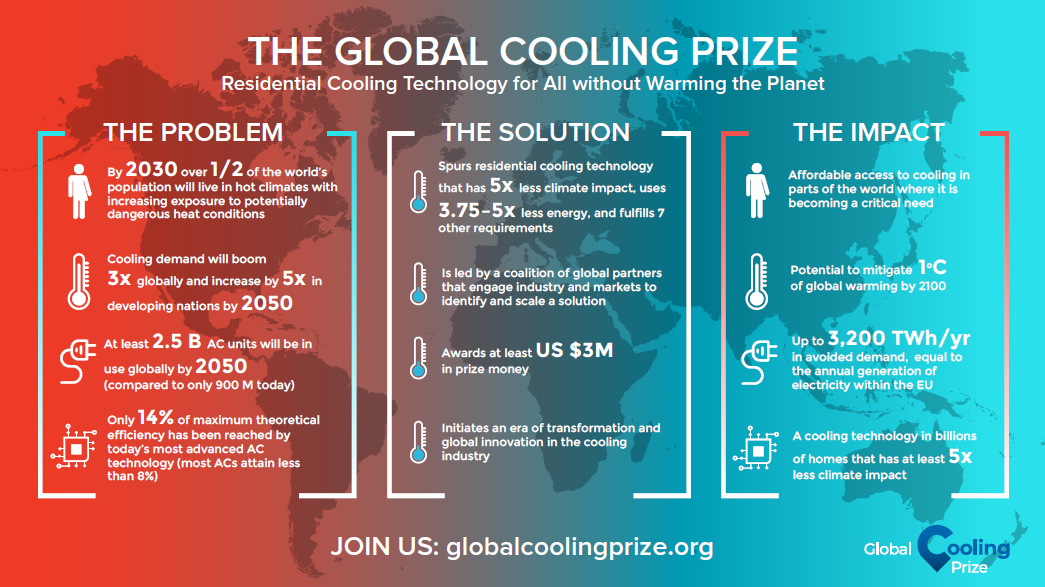
The Global Cooling Prize is rallying a coalition of leaders from around the world to solve the critical climate threat that comes from growing residential air conditioning demand. The $3 million prize will harness the power of innovation to develop and scale breakthrough affordable cooling solutions that enhance people’s lives without contributing to runaway climate change.
The ground-breaking competition is designed to incentivise development of a residential cooling solution that will have at least five times less climate impact than today’s standard products. This technology when scaled could prevent up to 100 gigatons of CO2-equivalent emissions by 2050 and put the world on a pathway to prevent 1 degree Celsius of global warming by 2100, all while enhancing living standards for people in developing countries.
The prize is part of Mission Innovation’s Affordable Heating and Cooling of Buildings Innovation Challenge. As part of India’s commitment to Mission Innovation, the Indian Ministry of Science and Technology is also actively supporting the Global Cooling Prize. The prize will launch in New Delhi on 15th November 2018 and will be open for a period of two years. The preliminary application deadline is June 2019, find out more here.
At least $2 million in intermediate prize money will be awarded to support prototype development. These prototypes will be tested for performance in both laboratory and real-world conditions in a heat-stressed city in India. The ultimate winner will be awarded at least $1 million to support commercialisation and scaling of their innovative technology.
The prize will attract talent from across sectors and around the world to design a cooling solution for a typical tropical or subtropical home that will have at least 5x less climate impact. This will be achieved through a combination of dramatically reduced consumption of grid-supplied electricity and use of lower global-warming-potential refrigerant per unit of cooling than a typical RAC unit being sold in the market today. The winning solution will also need to operate within predefined constraints on refrigerant characteristics, materials, water consumption, full-load power consumption, and maintenance requirements. It will also need to be affordable to typical consumers, costing no more than twice the retail price of today’s standard units at assessed industrial scale (which would result in a payback period of between three and four years).
The Global Cooling Prize will be administered by Rocky Mountain Institute (RMI), Conservation X Labs, the Alliance for an Energy Efficient Economy (AEEE), and CEPT University, with high-level leadership, guidance, and support from the Indian government’s Department of Science and Technology and other major funders. The prize is a growing coalition of the world’s most influential NGOs, policymakers, innovators, and labs. More information can be found on the prize website.
